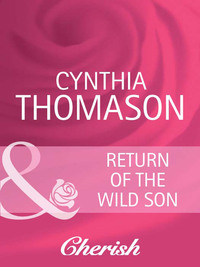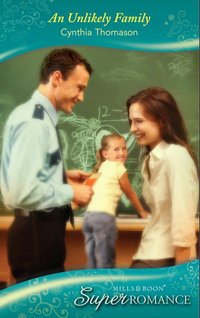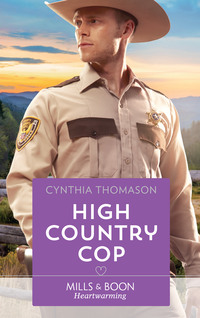
Полная версия
Firefly Nights
The sheriff set his elbow on top of the car. “I’m counting on you to keep your word, Kitty, and to make Adam keep his. Don’t make me regret giving you and the boy this chance.”
His implied warning only added to her guilt and uncertainty.
“That fella in there is my brother’s son. He’s been through a lot over the years.”
Right. Campbell was a war veteran. But he’d also worked for the wealthy Leland Matheson and made his home in Raleigh before coming to Sorrel Gap, so he hadn’t bedded down with land mines without a break. “I’ll look after him,” she said, and sent a silent prayer skyward that she’d succeed. “You take care of my truck, all right?”
He smiled at her. “Yes, ma’am. I’ll even have my mechanic look it over. That truck’ll be all yours again about the same time my nephew can live out here on his own.”
How long would that be? How long would she and Adam have to remain in this dusty, forsaken patch of North Carolina despair? “You won’t forget to have the phone turned on in our room, will you?” she asked as a flood of panic returned.
Oakes indicated that he would remember. The promise of a connection to the outside world, the chance to call Bette and Esmeralda, erased some of Kitty’s misgivings.
The sheriff climbed into the patrol car and backed out of the parking lot. Soon he was over the hill and returning to blessed civilization.
And Kitty and Adam went into their room.
Actually none of them will do.
The words Campbell Oakes had uttered a few minutes ago about the rooms at the Saddle Top Motel flashed in Kitty’s mind. And now, standing just over the threshold of unit number six, Kitty understood what he’d meant. And she suddenly felt as tired as this abandoned old room looked.
Adam entered the room and covered his nose. “Phew. Now we have another gross smell.”
Kitty yanked open the rubber-backed drapes covering the picture window. “That’s neglect, Adam,” she said. “Mildew. Stale air. Whatever you want to call it. Just please help me open the room up.”
They each cranked handles on opposite sides of the glass until two large panes creaked open. A breeze swept inside, depositing dust from the sill on a round Formica table and two orange vinyl chairs.
The admittance of air helped eliminate the odor, but the accompanying sunlight emphasized the deplorable condition of the furnishings. There were two double beds, each covered with thin spreads in faded gold and avocado stripes. Kitty walked over flat shag carpet that might once have been a peachy color, but was now nondescript. She ran her hand over the top of a six-drawer brown dresser. Three of its pulls, which reminded her of the fins of a vintage automobile, dangled loose, hanging by only one screw. A television sat next to the dresser on a rusty metal stand.
Kitty went to the rear of the room where there was a gold vanity under a rectangular mirror held in place by a half dozen clear plastic mounts. She opened a door to reveal a bathroom decorated in small gold-and-white tiles. When she flushed the toilet, she was relieved to see the discolored water swirl over rust stains in the bottom of the bowl and disappear. It was replaced with a welcoming pool of clear water.
A sharp click followed by an electrical buzz sent Kitty rushing back to the sleeping area. “What’s wrong?” she asked Adam, but immediately saw what had produced the strange noises. Her son sat on the end of a bed, his face cupped in his hands as he stared gloomily at a TV screen with more static than picture.
“It’s not even color,” he said. “I can’t watch this.”
She checked the back of the television. Its bulbous shape convinced her the set was color even if the only remaining evidence of the NBC peacock was a sickly Martian green. “Probably just needs a new antenna,” she said.
“This place sucks.” Adam turned the channel wheel, which only had thirteen numbers. He was able to get minimal reception on four of them.
“We’ll worry about that later,” Kitty said. “For now, get off the bed.”
“What?”
Seeing her son on the old linens had revitalized Kitty with the instinct to protect her young. “I don’t want you sitting there.”
He stared at her as if she’d lost her mind, but he stood. She ripped the linens from both beds and piled everything, sheets, spreads and two thin blankets, into Adam’s arms. “Take these to the breezeway. I saw a decent washer and dryer and a bottle of detergent. Fill the washer with half the linens, dump in some soap and turn it on.”
He grimaced at the load in his arms. “I don’t know how to wash clothes.”
“It’s easy. Read the dials and choose whichever settings claim to have the most superpowers.”
He trudged out of the room, sheets trailing behind him. Kitty followed him outside but stayed on the walkway. She leaned her elbows on a railing that ran the length of the covered walkway and took a deep breath. “Okay, Kitty,” she said to herself. “You can do this. It won’t be so bad.”
The wind had calmed so that only a gentle breeze rustled the pitiful shrubs that stubbornly existed in nutrient-depleted beds in front of the motel. Kitty plucked a pale, drooping leaf from an evergreen plant and studied it. “All it would take is a little fertilizer and some serious weed removal, and this bed could be brought back to life,” she said. “I’ll bet these bushes could look as good as...”
She stopped, wondering where she had been going with that sentence. And then she looked across the two-lane road to hills that dipped and rose in elegant curves up from the gap and into the horizon. A wispy haze hovered over a cleft, a saddle-shaped indentation in the tallest peak, bathing the mountain top in a cool blue-gray mist.
It must have been a nurturing spring, she decided, because every tree in her view was dressed in the most remarkable shades of green, from deep emerald to pale olive. She twisted the leaf between her fingers. “Yep, you could look as good as what lives just across that road.”
She blew the leaf into the breeze and glanced over her shoulder into the bleakness of her room. What had seemed hopeless only moments ago now at least hinted of promise. “It’s sure a long way from my father’s house,” she said, “but it’s a heck of a lot better than Bobby’s sixteen-foot travel trailer.”
She’d been in her second year at the University of Florida when charming, sinfully handsome Bobby Watley played a golf tournament at a nearby resort. Kitty volunteered to be a scorekeeper. Her mother had died a few weeks before, and Kitty was desperately seeking any activity that would get her out of the classroom and the claustrophobic despair where her grief had taken her. Unfortunately it had been Bobby’s dazzling smile that had taken her mind off her problems, not his less-than-stellar golf swing.
Two weeks later, she dropped out of school and married Bobby in the town where the next tournament had been held. Now she couldn’t even remember the name of the place. Towns all ran together, and state lines became indistinct when you stayed in campgrounds that all looked alike.
She shivered now, thinking of that dismal time in her life when she was married to Bobby. They never had enough money. They never had enough room. When Adam came and he needed space, she’d been forced to toss out most of the possessions she’d brought with her. She fixed simple meals on a small, two-burner stove.
But of all the things she lacked with Bobby, the most glaring was encouragement. When she craved support, Bobby offered criticism. When she asked for help, Bobby demanded more than anyone could give. Had she known Bobby was so emotionally needy, she never would have married him. Had she realized the same of herself, she especially wouldn’t have.
She’d been young when she married Bobby. But she’d felt old when she left him. After twenty-four months of watching her husband fail on the golf tour, Kitty called her father and begged for his forgiveness. A day later she walked away from a dry, dusty campsite in Arizona with nothing in her pocket but the credit card her father had overnighted, and her ten-month-old son in her arms. And because Bobby knew he didn’t have a chance of seeing any of Owen’s money, he signed the divorce papers sent by the Galloway attorney.
Even when she’d put those years behind her and moved back to Richland, she constantly struggled to move forward without being haunted by the past. It didn’t help that Owen fanned the fires of her memories. Sometimes she thought the greatest satisfaction he had in life was reminding her of the foolish mistake that had cost her a college education, her independence and, most importantly, her self-esteem.
“Mom?”
Brought back to the present, she smiled at Adam. “How’d you do with the laundry?”
“I guess I did okay. I read the directions on the soap jug.”
She drew him close to her side. He flinched at first and then stood quietly, as if he sensed that contact was what she needed. Stroking his hair, Kitty admitted that this child of hers was a handful, but he was all she had of Bobby Watley and all she wanted from him. At least Bobby had given her Adam.
During Adam’s twelve years of life, Bobby had been little more to him than a crinkled copy of an internet article about the players in some insignificant tournament. Adam read that story over and over, connecting with his father the only way he knew how. Kitty had made sure the article was among their belongings in the broken-down truck. Adam wouldn’t have wanted to leave that piece of his history behind.
“We’ll get washed up,” she said to Adam, “and then look in on Mr. Oakes.”
The mention of Campbell’s name brought a strange image to Kitty’s mind, as if the Adonis beauty of Bobby’s face had mutated like a Hollywood camera trick into the imperfectly rugged features of Campbell Oakes. She hardly knew anything about Campbell, but she sensed that he wasn’t a bit like Bobby. Not that she should be thinking of Campbell as anything other than an obligation, but some things were just obvious. Bobby was sand, shifting with the tides, pretty to look at, but you couldn’t build a house on it. Campbell, despite being bested by a busted fuel line, was definitely rock.
“We got some money left, don’t we?” Adam said as they walked back into unit number six.
“I have a little. Why?”
He nodded at the television. “Maybe we can buy an antenna for that old piece of junk.”
“I’ll think about it.”
He grinned at her. “Give me back my Tampa Bay jacket, and I’ll pick one up at the Value-Rite when I go into work.”
CHAPTER FOUR
THE RINGING PHONE irritated Campbell, but not just because he didn’t want to talk to anyone. He couldn’t reach the dang receiver. The phone mocked him from an end table at the far end of the couch, ten feet at least from where he had parked himself in the recliner.
He gripped the arms of the chair and pushed himself up. Swearing under his breath seemed to give him enough strength to hobble to the sofa and sprawl across the three cushions. He’d answer the darn thing now, but he reminded himself to keep the receiver nearby from now on. And then he reminded himself never to crash his plane again. He read the caller ID, Travis Oakes, and punched the connect button. “Dad?”
“Oh, good,” came the calm, authoritative voice of the decorated Army Lieutenant Colonel. “You’re out of the hospital.”
Campbell painfully hoisted himself into a sitting position. “Yeah. They released me about an hour ago. I’ve only been at the motel a few minutes.”
“I’m not happy with your decision, Campbell. I had it all set up with Virgil for you to stay with him and Wanda.”
“Much as that idea warms the cockles of my heart, Dad, I chose this option.”
His father chuckled. “I know Wanda can be difficult...”
“She’s a self-righteous harpy,” Campbell said.
“But she knows how to make chicken soup,” his father pointed out.
“I don’t like chicken soup.”
There was a pause during which Campbell figured his dad was preparing a lecture about common sense in times of adversity.
Thankfully Travis surprised him. “So, what arrangements have you made?” he asked. “Who’s looking in on you?”
“Virgil found someone. I’ll be fine.”
“Someone with medical experience?”
Kitty Watley? Campbell wasn’t one to draw upon stereotypes when evaluating an individual, but in this case he would bet money on the fact that he knew more about nursing than this quirky, out-of-luck, out-of-options lady did. And his expertise was limited to the variety pack of bandages in the tin under his sink.
“I assume so,” he said. “Virgil thinks she can handle the job. And besides, I have a home health person coming twice a week to clean the surgery incisions.”
“That’s good. Can the woman Virgil hired fix your meals?”
“He claims she’s a great cook.”
“Okay, I guess that will suffice. How are you feeling?”
Campbell pressed his hand over his chest. “Pretty good.” Lousy. Like I could spit hot nails. “Still some pain, but it’s not too bad.”
“This is a mess, son. I can’t locate your mother in South America or I’d demand that she come to Sorrel Gap and take care of you.”
Playing host to his mother had all the makings of a nightmare. Campbell knew Vivian Parnell Oakes didn’t respond well to demands. She and Travis had been forced to accept that fact three years after they married, and Vivian had run for the hills. At that time, the hills had been the Pyrenees, not the gentle rises of Sorrel Gap, North Carolina. It seemed Campbell and his father had both chose women who hated having their wings clipped.
“Don’t worry about it, Dad,” Campbell said. “Mom’ll probably call me in the next few days, and I’ll tell her what happened. But I don’t need to ask for her help.”
His father sighed. “You’re better off not to expect it, Camp. I wish I could have stayed longer.”
“Hey, you were here after the accident. That’s enough. I’m a big boy. I can take care of myself.”
“I know you can, most of the time. Just keep this woman Virgil found on her toes. I know how you like things around your place—neat and orderly. Don’t let her slack off and take advantage of you.”
Campbell smiled to himself. He’d grown up under the strict but fair supervision of Travis Oakes. Now they both believed in the same motto. No slackers allowed. “Would I do that?”
“No, you wouldn’t. I’ve got to run. I’ll call you again in a couple of days. You know where you can reach me.”
“I do, Dad.” The last thing on Campbell’s agenda was whining to his father. Besides, Fort Irwin, California, was a long way from the Saddle Top Motel. Campbell was on his own. And as bad as his situation was, he thought of Wanda and knew things could be worse.
He set the phone back on its cradle and reached across the sofa for his book. He’d just found his place and resumed reading when he heard a tap at his door.
“Hey, you in there?”
He laid the book on the coffee table and stared at fingers wrapped around the partially open door. “I am,” he said. “Where else would I be?”
The door swung open the rest of the way and banged against the wall, leaving a permanent mark on the new paint job. Adam Watley, his shorts reaching below his knees, sauntered inside. “Oh yeah, I guess you’re stuck here even more than we are. At least we can walk away.”
Campbell acknowledged the obvious conclusion with a frown.
“My mom sent me over to see if you have any soap larger than a bottle cap and maybe made in this century.” To illustrate, he unwrapped a pint-size bar of motel soap, held the paper by a corner and let the crumbling contents of Cashmere Bouquet fall to the floor.
Campbell stared at the polished honey maple planks he’d recently refinished and imagined the kid pulverizing soap shavings into a gummy mess with his bulky sneakers. “In the bathroom,” he said, pointing over his shoulder to the door to his right. “Under the sink. And clean up the mess you just made before you walk in it.”
Satisfied for the moment when Adam sidestepped the soap, Campbell picked up his book and tried to reacquaint himself with the hero’s dilemma. Trapped in a dank basement, his wrists handcuffed to a steam pipe and the bad guys just upstairs, the fictional cop’s problems were worse than his own, but only barely.
The kid returned with a regular-sized bar of Dial and stood directly in front of the couch. Without waiting to be acknowledged, he blurted out, “Are you a neat freak?”
Campbell dropped the book to his lap. “What?”
“That cabinet in the bathroom. All the bottles are in a line, shortest to tallest. The towels are in rolls, for Pete’s sake. It’s like you’re expecting the queen of England to stop by.”
Campbell reminded himself to give the kid the benefit of the doubt for now. Maybe nobody had ever taught him basic manners. “No. I’m not expecting anyone in here for any reason. Got the message?”
Adam snorted through his nose. “Yeah, but it won’t work. Mom’s coming over to fix your lunch.” He bounced the bar of Dial in his palm. “She just wanted to wash her hands first. Our room is disgusting.”
“I’ll tell housekeeping.”
“Huh? We’ve actually got a maid?”
Campbell rolled his eyes.
“Oh. Funny.” When Campbell started reading again, Adam turned toward the door, but stopped when he spied the fifty-two-inch TV in the middle of an oak entertainment center. A baseball game was on the screen, the volume turned low. Adam squawked. Campbell looked up to see the kid’s jaw drop. He backed up a couple of steps and plopped onto the sofa. “You’ve got cable!”
“No, I don’t,” Campbell said, wincing at the pain the kid’s uninvited and inconsiderate movement had caused in his chest. “There’s no cable out here. I’ve got a satellite dish.”
“Even better!” His eyes lit up when he spotted the remote control on the table. “I want to be connected in our room!”
Campbell scowled at him. “They don’t let juvenile offenders have luxuries like three hundred TV channels.”
“Heck, if I was in prison I’d have a better TV in my cell than that crappy ol’—”
“Adam!” Kitty Watley burst into the room like an avenging angel and swooped over her son. “I just told you not ten minutes ago to stop complaining.”
He shrugged. “I forgot.”
“Apologize to Mr. Oakes.”
“For what?”
“For expressing your opinions in such a vulgar way.”
Campbell raised his eyebrows. “Actually I’ve been known to use worse language than that.” Like when I’m in a plane heading nose-down with fuel spraying in all directions.
A full thirty seconds passed before Adam responded to a nudge by his mother and mumbled, “Sorry.”
“While you’re being so humble,” Campbell said, “get the dustpan and a whisk broom out of the closet and sweep up those soap crumbs. Maybe the next time you want to make a point you won’t use visual effects.”
Adam shuffled to the closet, and his mother took his place on the sofa. At least when she sat, she didn’t send shock waves into Campbell’s cracked ribs. But she did wiggle, and for some reason, that bothered Campbell more than the kid’s unceremonious plopping. She placed her hand flat against her bare chest above the top of a tank-type shirt. “I’m so sorry, Mr. Oakes. Adam is high-spirited. He doesn’t mean any harm, but...”
“Do you always apologize for your son?” Campbell said. “If so, it must take up a lot of your time.”
“Well, there are days. Unfortunately Adam has had some bad influences on his life.”
Typical cop-out for lack of discipline. “So you’re using the wrong-crowd theory as a defense for the boy’s behavior?”
Kitty’s clear, disturbingly blue eyes locked on to his. “It’s more the wrong role model. But Adam won’t cause you any trouble, I promise.” She stood up and headed toward the kitchen. “I’ll get your lunch now.”
“You don’t have to. I’m not hungry after all.”
She stopped, turned and placed her hands on the waistband of her low-slung pants. “You’ve got to eat. Otherwise you won’t get your strength back.”
He turned a page in his book. “That, Miss Kitty, is up to a power much greater than the meager benefits of a bologna sandwich.”
Confusion veiled her eyes for an instant. But then her foot started tapping in its ridiculously impractical sandal. “I told your uncle I would take care of you, and I intend to keep my word.”
“Yeah, you’ve got to keep the hoodlum out of jail...”
Her eyes narrowed. She took in a sharp breath that seemed to raise her up a couple of inches. “However...” She drew the word out for several seconds. “I can only put food in front of you. I can’t give you the good sense to eat it.” She lifted her chin in a defiant gesture. “I guess either you were born with that or you weren’t.”
He stared at her, waiting for her to look away. She didn’t, so he hitched one shoulder in what he knew was childish insolence. “Suit yourself.”
As he watched her walk to the refrigerator, he pondered the information she’d given him. What role model had the kid had in his life? Was Kitty talking about the boy’s father? Was she married? If so, where was the man who should be taking care of this desperate pair? Was he going to show up at the Saddle Top Motel someday?
That was all he’d need. Campbell felt the first manifestation of unease coil like a spring in his gut. He didn’t want to be in the middle of a domestic dispute, forced to defend this duo, not in the condition he was in. Then he remembered Virgil had referred to Kitty as “Miss Watley.” That eliminated the husband possibility, if Virgil was right. But it didn’t eliminate an ex-boyfriend one.
After she took a can from the cupboard and a package of lunch meat from the refrigerator, Kitty looked over her shoulder at him. It was the first time he realized he was still staring at her and that he probably shouldn’t be.
“Is something wrong, Mr. Oakes?” she asked.
Truly he was gawking at her as if he’d been trapped in a mine shaft for a week and she was the sun. “Nothing’s wrong,” he barked at her. She lifted her eyebrows, waiting for a logical explanation. He certainly couldn’t tell her that he’d been memorizing every curve under that shirt, so he improvised. “It’s those clothes you’re wearing. They’re, uh, interesting to say the least.”
That was a stupid thing to say. What did he know about women’s clothes? Only that the hip-hugging pants and top that Kitty wore had to be the most unforgiving garments he’d ever seen on a female. If she’d had a blemish anywhere on her torso, he’d have seen the outline through that fabric. But the more he looked, the more he concluded that she was awfully pretty.
She grinned bashfully and turned her attention to heating something on the stove. “Thanks, Mr. Oakes. These clothes certainly aren’t fashion statements, but they’re comfortable.”
Kitty Watley was strange. He’d expected her to blast him for what some women would have interpreted as a snide comment about her appearance. That’s exactly what Diana would have done if, heaven forbid, there had ever been a reason for him to question her impeccable taste. And yet Kitty had taken it like a compliment.
Once again he found himself searching for the right words. “I wish you’d stop calling me ‘Mr. Oakes,’” he finally said. “It makes me feel old, as well as lame.”
She slathered something on two pieces of bread. “Okay. You’re certainly not old, Campbell. And once your leg heals, you won’t be lame, either.”
If only the doctors were as confident, he thought. “When you’ve got that food ready, you can leave it on the end table. Then you and the kid can take yours and go.”
A few minutes later Kitty quietly set a tray on the table without disturbing his reading as her oblivious son had done. But this time it wouldn’t have mattered, since Campbell hadn’t done anything but stare at the pages as if they were blank. She brought him a glass of water and his pain pills and then took her own food and left with Adam, who had spent the past minutes zipping through the channels on his remote.












